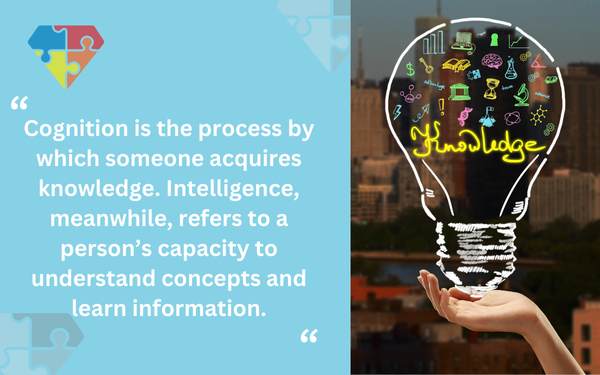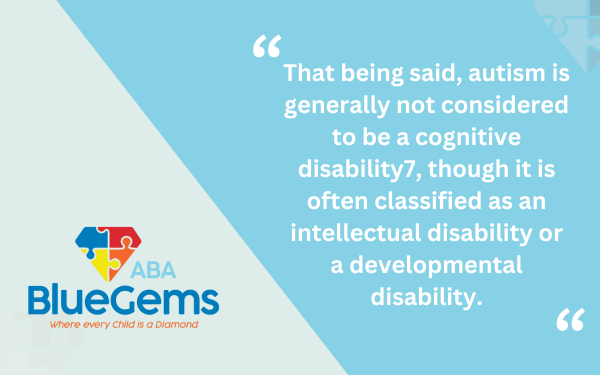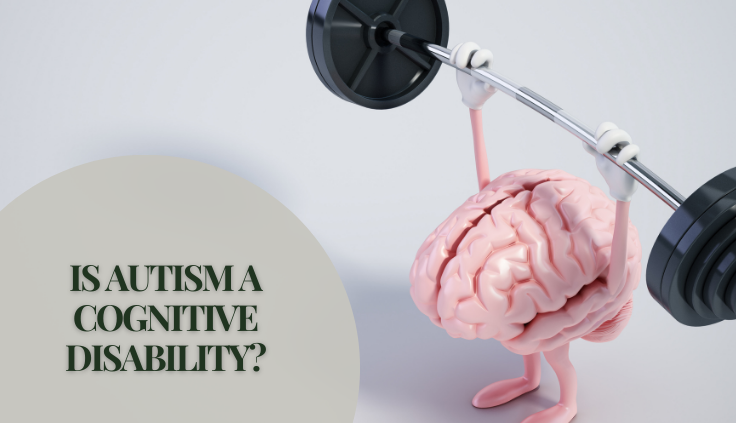Is Autism a Cognitive Disability?
Despite a surge of research, studies and resulting information that’ve come about in the last 15 years or so, there’s still a lot of debate about different aspects of autism spectrum disorder (ASD). We now know that autism can affect children in many different ways, that it can’t be diagnosed with a blood test or medical exam, and that there are effective ways to treat the symptoms, including applied behavior analysis (ABA therapy).
At the same time, some aspects that are not as clear about ASD are the root causes — though some connections have been made — as well as exactly how to classify it.
Many in the scientific and medical community describe it as a neurodevelopmental disorder, while others still believe it’s a cognitive disability.
We’ll examine some of the reasons for this discrepancy below.
Table Of Contents
What is a Neurodevelopmental Disorder?
The Diagnostic and Statistical Manual of Mental Disorders (DSM-5) classifies ASD as a neurodevelopmental disorder1. In general, that term describes a group of different conditions that can affect the functioning and development of the body’s central nervous system and brain2.
NDDs will usually manifest themselves early on in childhood3, and many will persist well into adulthood. Autism, in fact, is a lifelong disorder that persists throughout a person’s entire life.
In addition to ASD, other NDDs included ADHD, intellectual disabilities, learning disorders such as dyslexia, motor disorders such as cerebral palsy, and Tourette syndrome.
What is a Cognitive Disability?
A cognitive disability, meanwhile, refers to an intellectual disability or cognitive impairment that limits a person’s adaptive behavior and intellectual functioning, which can impact how they are able to do daily tasks, reason and learn4.
Cognitive disabilities affect how people are able to perform mental tasks, such as understanding, remembering and problem-solving5. The cause of these disabilities can be a wide range, including genetics, infections, developmental delays or brain injuries.
What’s the Difference Between a Neurodevelopmental Disorder and a Cognitive Disability?
There are a lot of similarities between neurodevelopmental disorders and cognitive disabilities, as you can see from the descriptions above. That being said, there are some key differences that are important to understand.
The difference, in fact, lies in the terms cognition and intelligence.
Cognition is the process by which someone acquires knowledge. Intelligence, meanwhile, refers to a person’s capacity to understand concepts and learn information.

There are some cognitive disabilities that are classified as intellectual disabilities, which is more of an umbrella term, but not every intellectual disability is considered a cognitive disability.
Learning disabilities are generally considered cognitive disabilities6. People who have them generally have a better ability to perform self-care tasks and live independently than those who have intellectual disabilities.
So, is Autism a Cognitive Disability or Neurodevelopmental Disorder?
As mentioned before, the DSM-5 categorizes ASD as a neurodevelopmental disorder, but there is some debate about that. Some people believe that the definition is too restrictive and limiting.
That being said, autism is generally not considered to be a cognitive disability7, though it is often classified as an intellectual disability or a developmental disability.

The latter refers to a condition where an intellectual and/or physical impairment causes setbacks or delays in certain developmental milestones. For instance, children who have a developmental disability might not speak as soon — or as frequent — as other children their age.
How is Autism Treated?
As a neurodevelopmental disorder, and an intellectual disability, there is no cure for ASD. In other words, there is no medicine or procedure that can “fix” autism.
However, there are very effective therapies that treat the symptoms of ASD, working to improve deficits in social interaction and communication, while also targeting certain behaviors that would be considered negative and/or harmful.
ABA therapy is the gold standard treatment option for children on the autism spectrum. It’s a science- and evidence-based approach to learning and behavior that uses positive reinforcement, repetition and many other tools and strategies to help patients live more independently.
It’s also a very flexible and personalized program, as all ABA therapy treatments are catered specifically to each individual’s unique strengths and challenges, which helps make them more successful.
Blue Gems ABA Creates Personalized and Flexible ABA Therapy Plans
Despite some confusion and debate, autism is not a cognitive disability. It’s considered to be a neurodevelopmental disorder, or an intellectual disability, and people who have it are treated based on the symptoms that exhibit as a result.
At Blue Gems ABA, our team of dedicated professionals creates personalized and flexible ABA therapy treatment plans that specifically target certain behaviors and help children gain the skills they need to live more independently.
To learn more, please contact us today.
References
- https://www.verywellmind.com/neurodevelopmental-disorders-definition-symptoms-traits-causes-treatment-5221231
- https://www.sciencedirect.com/topics/psychology/neurodevelopmental-disorder
- https://pmc.ncbi.nlm.nih.gov/articles/PMC10094062/
- https://www.rileychildrens.org/health-info/intellectual-cognitive-disability
- https://www.deque.com/blog/an-introductory-guide-to-understanding-cognitive-disabilities/
- https://ldaamerica.org/advocacy/lda-position-papers/what-are-learning-disabilities/
- https://www.autismparentingmagazine.com/autism-cognitive-disorder/




